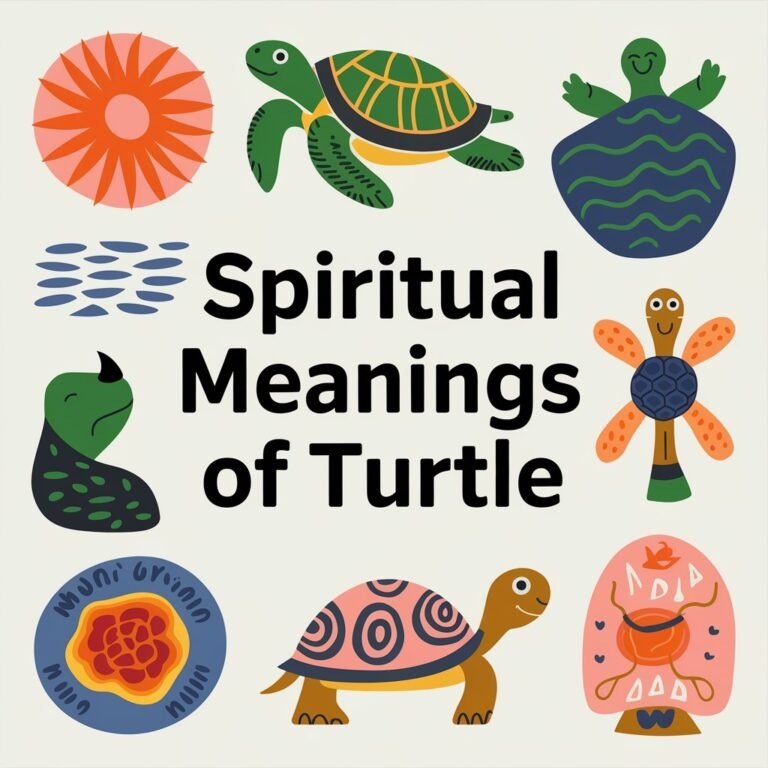10 Spiritual Meanings of Quagga: Historic Symbolism & Faded Identity
The quagga’s disappearance prompts us to think about how symbols represent our shared history and identity. Its history encourages us to think about loss, renewal, and resilience. It makes us consider what is left when something important disappears. As we look at these meanings, the story of the quagga makes us reflect on our own connection to change and preservation. It shows us how faded symbols can motivate us to find new beginnings.
The Reflection of Vanishing Heritage
The spiritual meaning of the quagga often highlights how its disappearance reflects a fading heritage. The loss of this unique animal symbolizes larger issues of cultural and environmental decline. When we think about its extinction, we see how the quagga represents memories of traditions and connections that once brought communities and ecosystems together.
Its disappearance echoes the loss of ancestral traditions and history. This serves as a reminder of what’s been lost through neglect or rapid change. The absence of the quagga shows a shared human experience: the need to preserve our heritage and stay connected to our roots.
Its story encourages us to think about how losing special symbols affects not only nature but also the collective memory that forms cultural identity.
Embracing Transformation Through Loss
The loss of the quagga marks the end of an important animal. It also offers a chance to accept change and grow. Loss can lead to renewal. It pushes you to think about how you deal with change.
Accepting that change is part of life helps you become stronger. When you see loss as a normal part of life’s cycle, you build resilience. It also helps you feel more connected to a world that’s always changing.
Seeing fading identities as opportunities, not as the end, opens the door to new ideas and bonds. Embracing this truth helps you handle change with calm. It reminds you that within loss, there’s always a chance to start again.
This process can lead to meaningful growth and new understanding.
Symbolism of Ephemeral Beauty
Ephemeral beauty shows how life’s most beautiful moments are temporary. It reminds you that their value comes from their short time.
This idea emphasizes that true beauty is found in delicate, passing moments. Recognizing this can help you appreciate things like a sunset’s glow or a quick smile.
It encourages you to see worth in what’s fleeting. Sharing an understanding of life’s fragile moments creates a sense of connection.
The Echoes of Forgotten Souls
As you study the idea of the “Echoes of Forgotten Souls,” you see how traces of lost lives stay in symbols, memories, and cultural items long after their voices fade. These echoes connect us to ancestors and give a feeling of belonging that goes beyond time.
The quagga, as a symbolic object, represents this silent remembrance. It reminds us of lives once full of vitality, now only remembered through history and symbols. Recognizing these remnants helps you understand cultural memory better. It encourages you to honor stories from past generations.
Each faded picture or symbol invites you to reflect on shared roots. It reassures you that, even in disappearance, the essence of these forgotten souls lives on in our collective memory. This connection links us across many generations.
Lessons in Preservation and Awareness
The remains of the quagga remind us how important it’s to preserve and understand our natural and cultural heritage. They show us why protecting genetic diversity is vital. Conservation efforts help keep unique traits that make species strong.
You can see:
- Faded pictures of striped ancestors behind glass
- DNA samples stored carefully
- Models built to show what the quagga looked like
- People talking about conservation efforts
- Exhibits that teach visitors about endangered species
These images and displays teach us that understanding and caring for endangered animals helps us feel connected. The story of the quagga shows us that careful protection plans are needed.
When we become aware now, we can help build a future with rich biodiversity. This lesson from the past reminds us to act today to protect our natural world.
The Call to Protect Natural Diversity
Protecting natural diversity is urgent. Every species has a role in keeping ecosystems balanced. Your efforts in cultural conservation show that biological symbols, like botanical icons, strengthen our bond with nature.
These symbols remind us that species, such as the quagga, are more than their physical form. They represent shared history and spiritual meaning.
By protecting biodiversity, you also protect these cultural stories. This helps keep important ecological values alive.
Your actions create a sense of belonging in communities that care about the environment. They see that each species is important. Your work directly helps nature survive.
Preserving diversity isn’t just about ecology; it also nourishes spiritual connections.
Resilience in the Face of Extinction
Despite facing the threat of extinction, species like the quagga show strong resilience that challenges the idea of final disappearance. This resilience highlights how communities and conservation efforts adapt through new strategies and renewed purpose. Imagine a landscape where:
- Genetic traces are rediscovered, sparking hope and activism
- Conservationists use adaptive methods to revive the species
- Cultural stories change to honor lost identities
- Communities unite around shared ecological roots
- Symbolic connections promote collective healing
This persistence shows that adaptive change is key to fighting ecological loss. Your understanding of these processes confirms that resilience is an active force. It creates a sense of belonging through shared responsibility and hope for future coexistence.
The quagga stands as a symbol of this strong spirit amid challenges.
Memory as a Source of Spiritual Strength
Memory helps you find strength in your spirit. It connects you and your community to a shared identity that goes beyond physical presence.
By remembering your culture, you stay connected to your roots and traditions. This strengthens your way of coping with loss. It allows you to honor the symbol of the quagga.
You turn its fading history into a source of ongoing strength. By preserving stories, symbols, and rituals related to the quagga, you reaffirm your sense of belonging and heritage.
These acts of remembrance give you stability and help you face challenges. As you keep this history alive, you build a resilient spirit. This resilience is rooted in cultural memory.
It keeps the essence of what once was alive. In doing so, it continues to inspire and support your collective purpose.
The Faded Shadow of Identity
As the image of the quagga fades, it turns into a shadow of its past meaning. Its form shows the loss of real links to ancestors and cultural treasures. The fading picture makes you think about how fragile collective memory is.
Old relics become just shadows of their original value. Imagine:
- Faded carvings on ancient stones
- Dusty artifacts in forgotten museums
- Worn footprints on ancestral lands
- Crumbling statues representing history
- Faded textiles telling stories of kinship
These remains give a feeling of belonging but also show how cultural identity can disappear. The shadow of the quagga reminds us how fragile and temporary collective memory is. It urges us to protect cultural heritage before it’s lost forever.
Inspiration for Rebirth and Renewal
The image of the quagga fading away represents loss. It also encourages renewal and growth. This symbol reminds us to rebuild what’s been lost. It shows that resilience is possible.
The quagga’s story highlights the importance of protecting our cultures and traditions. It teaches us that identities can be recovered and transformed. This idea motivates communities to save their endangered practices and histories.
The ghostly image of the quagga pushes us to see setbacks as chances to reinvent ourselves. It links past and present, filling us with hope. The story of the quagga becomes a symbol of rebirth. It proves that renewal can grow from memories.
This inspires us to connect deeply with cultural and personal strength.
Frequently Asked Questions
What Spiritual Lessons Can Be Learned From the Quagga’s Extinction?
From the extinction of the quagga, you learn important spiritual lessons. The event teaches you to accept change and be humble. It reminds you to respect nature’s beauty and delicacy. This respect encourages you to live mindfully. You learn the importance of adapting to new situations. Valuing diversity becomes clear. These lessons help you feel more connected to the world. They also remind you to take responsibility for caring for nature. Embracing these ideas can deepen your sense of belonging and your commitment to protect the environment.
How Does the Quagga Symbolize Our Relationship With Nature?
Your thoughts on the quagga show how animals symbolize our bond with nature. The quagga reminds us to stay connected to the natural world. Ignoring this bond risks losing Earth’s creatures and the balance they provide. Taking care of animals is caring for our environment. It urges us to be responsible and aware of our role in protecting nature.
Can the Quagga’s Story Inspire Modern Conservation Efforts?
Your reflection on the quagga’s story shows how saving culture and nature can go together. Learning about lost species like the quagga can push people to protect animals today. This idea helps us feel connected and responsible for conserving wildlife.
What Does the Fading Identity of the Quagga Represent Spiritually?
The fading of the quagga’s image shows how things change and disappear over time. This reflects the idea that life is always moving and transforming. Understanding this helps us see history’s impermanence. It encourages us to accept change as a natural part of life. Recognizing the quagga’s loss reminds us to find comfort in nature’s constant cycles. It teaches that renewal and growth come from letting go of the old. Embracing change helps us feel more connected to life’s ongoing process.
How Can We Honor Lost Species Through Spiritual Practices?
You can honor lost species through spiritual practices by creating ceremonies that remember their importance. These rituals help communities connect to nature and honor the lives of animals and plants that are gone. Participating in such ceremonies brings a sense of respect, remembrance, and healing. It allows people to feel a bond with the environment and keep the memory of these species alive. By doing this, we celebrate their value and acknowledge our shared responsibility to protect nature.

Liza Stockholm is an esteemed spiritual guide and the visionary behind Spiritual with Liza. With a profound passion for empowering others on their spiritual journey, Liza offers a blend of educational content and personal guidance. Her expertise in spirituality is rooted in years of dedicated practice and study, making her a trusted companion for those seeking enlightenment and inner peace.







